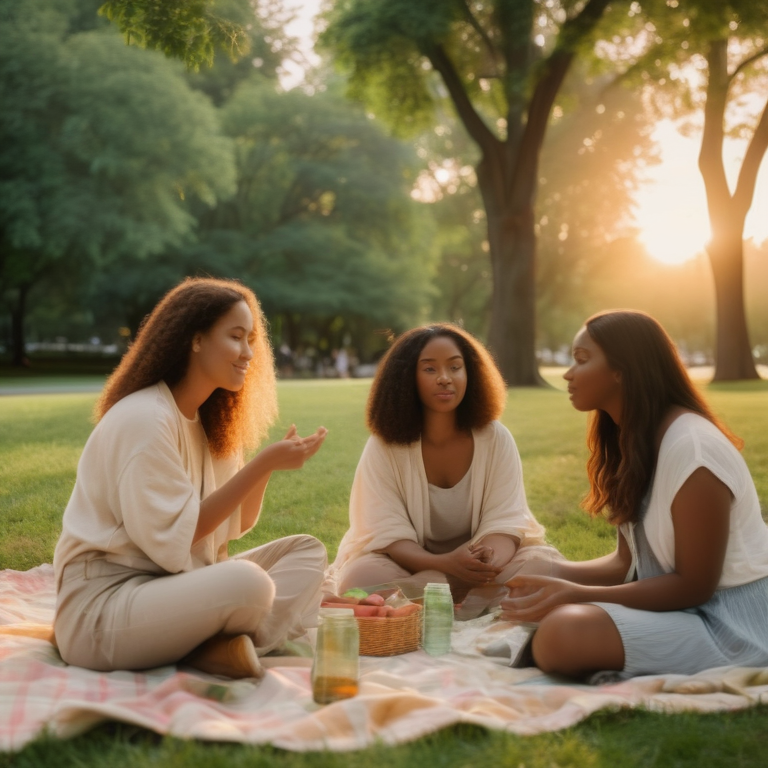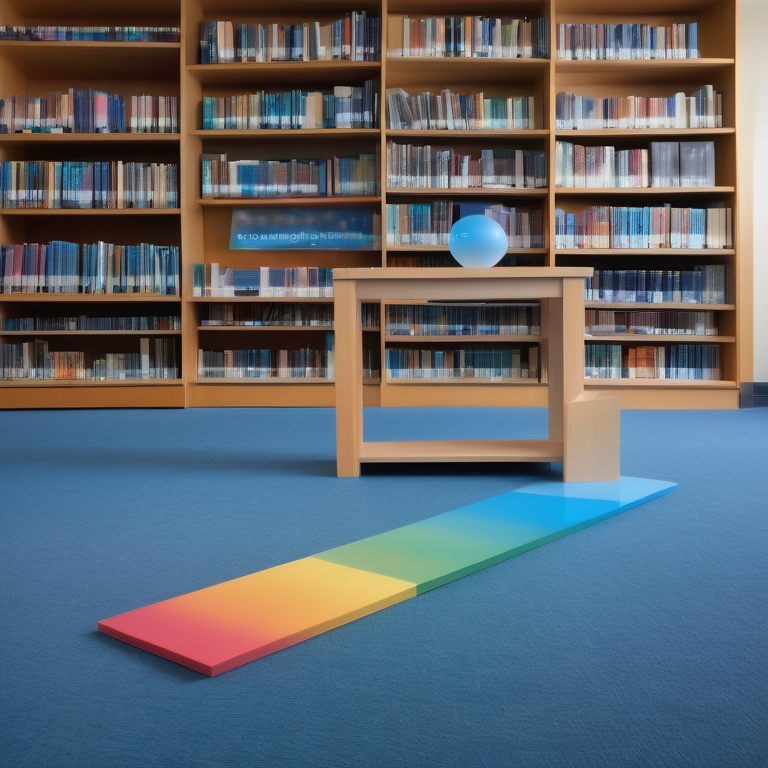Understanding Bisexual Women’s Experiences

Key Highlights
- Bisexual women’s health and well-being may be influenced by the gender and sexual orientation of their partner.
- Bisexual women in relationships with heterosexual cisgender men are less likely to be open about their sexual orientation.
- The of labels on personal and social identity can be significant for bisexual women.
- Bisexual women face challenges related to stereotypes and misconceptions within society.
- Bisexual erasure and invisibility are issues faced by bisexual women within the LGBTQ+ community.
- Bisexual women relationships navigate unique challenges in a heteronormative society.
- Biphobia and discrimination can have a psychological impact on bisexual women’s mental health.
- Finding support and resources for mental health is crucial for bisexual women.
- Representation and visibility are important for bisexual women.
- Building supportive networks and celebrating diversity within the bisexual community are essential.
- Advocacy and activism play a crucial role in fighting for recognition and rights for bisexual women.
Introduction
Understanding the experiences of bisexual women is essential for creating a more inclusive and supportive society. Bisexuality refers to the sexual orientation of individuals who are attracted to more than one gender. Bisexual women face unique challenges and complexities due to their sexual orientation and the way society perceives and treats them, making research into women’s sexuality crucial, especially in the UK. This blog aims to shed light on the experiences of bisexual women and provide insight into their lives.
Bisexual women often navigate dual attraction in a binary world, where society tends to understand sexual orientation as either heterosexual or homosexuality. This can lead to a lack of visibility and understanding, affecting their relationships, mental health, and overall well-being. Labels play a significant role in shaping personal and social identities, and bisexual women often face stereotypes and misconceptions both within society and the LGBTQ+ community. However, having an open mind and rejecting labels can allow for a more fluid and authentic understanding of one’s own identity.
Challenges related to biphobia, stereotypes, and discrimination can have a detrimental impact on bisexual women’s mental health. Finding support and resources for mental health is crucial for their well-being. Representation and visibility in media and popular culture, as well as the presence of role models within the bisexual community, are important for bisexual women to feel validated and understood.
Building supportive networks and celebrating diversity within the bisexual community are essential for creating a sense of belonging and solidarity. Advocacy and activism play a crucial role in fighting for recognition and rights for bisexual women within the broader LGBTQ+ movement. By understanding the experiences of bisexual women, we can work towards a more inclusive and accepting society for all sexual orientations.
The Complexity of Bisexual Identity
Bisexual identity is complex and encompasses a range of experiences and attractions. Bisexual women are attracted to both men and women and may experience different levels of attraction to each gender. Bisexuality encompasses a variety of different things, such as being romantically attracted to one gender but sexually attracted to another. It is important to understand that bisexuality is not a phase or a choice; it is a valid and often misunderstood sexual orientation. Bisexual women may face challenges in accepting and expressing their identity due to societal norms and stereotypes, particularly around traditional notions of masculinity and femininity. Recognizing and validating bisexual identities is crucial for creating an inclusive and supportive environment for all individuals.
Navigating Dual Attraction in a Binary World
Bisexual women often find themselves navigating dual attraction in a binary world that categorizes sexual orientation as either heterosexual or homosexual. Society tends to view sexuality as a fixed and binary construct, making it challenging for bisexual individuals to have their experiences acknowledged and understood.
Bisexual people have the capacity to experience attraction to more than one gender, which can be fluid and change over time. However, this fluidity is often misunderstood or dismissed. Bisexual women may face skepticism or invalidation from both heterosexual and homosexual communities, leading to feelings of confusion, isolation, and invisibility.
Navigating dual attraction can be a complex and ongoing process for bisexual women. They may experience different levels of attraction to different genders or find that their attractions fluctuate over time. It is also important to acknowledge and understand the experiences of bisexual men, who may also face challenges in a binary world. It is crucial to recognize and validate the diverse experiences of bisexual individuals and create inclusive spaces where they can freely express their identities without fear of judgment or erasure.
The Impact of Labels on Personal and Social Identity
Labels play a significant role in shaping personal and social identity. Bisexual women often struggle with the impact of labels on their identity due to societal expectations and stereotypes. Labels provide a way for individuals to identify and understand their own experiences, but they can also be limiting and restrictive.
Society tends to view sexuality as a binary construct, with individuals being categorized as either heterosexual or homosexual. This binary thinking erases the experiences of bisexual individuals and reinforces the misconception that bisexuality is a phase or a stepping stone to identifying as either gay or straight.
Bisexual women may face challenges in accepting and embracing their identity due to the lack of visibility and understanding within society. This can lead to feelings of isolation and confusion, as well as a reluctance to share their sexual orientation with others. It is important to create a supportive and inclusive environment that respects and validates the diverse experiences of bisexual women, including those who identify as part of the LGBT community, specifically the lesbian community, allowing them to define their own identities on their own terms.
Challenges Faced by Bisexual Women
Bisexual women face unique challenges due to the intersection of their gender and sexual orientation. Biphobia, discrimination, and stereotypes, including homophobia, are some of the hurdles they encounter in their daily lives. Bisexual women often face misconceptions, such as being perceived as promiscuous or indecisive. These stereotypes can lead to discrimination and erasure within society and even within the LGBTQ+ community. It is important to recognize and challenge these biases in order to create a more inclusive and accepting environment for all individuals, regardless of their sexual orientation.
Stereotypes and Misconceptions Within Society
Stereotypes and misconceptions about bisexuality are prevalent within society and contribute to the challenges faced by bisexual women. Bisexuality is often misunderstood or dismissed as a phase or a preference for experimentation. Bisexual women may be subjected to harmful stereotypes, such as being promiscuous or attention-seeking.
These stereotypes not only perpetuate biphobia and discrimination but also invalidate the experiences of bisexual individuals. Bisexual means being attracted to more than one gender, and it is not synonymous with confusion or greed. It is important to challenge these misconceptions and educate others about the diverse experiences of bisexual individuals. By promoting understanding and acceptance, we can create a more inclusive and supportive society for all sexual orientations.
Bisexual Erasure in the LGBTQ+ Community
Bisexual erasure refers to the erasure or dismissal of bisexuality within the LGBTQ+ community. Despite being an important part of the community, bisexual individuals often face invisibility and invalidation. Bisexual women may struggle to find acceptance and support within LGBTQ+ spaces, which are sometimes dominated by gay and lesbian identities.
This erasure can lead to feelings of isolation and exclusion, as well as a lack of resources and support for bisexual individuals. It is essential to recognize and uplift the experiences of bisexual women within the broader LGBTQ+ movement. By creating inclusive spaces and advocating for bisexual visibility, we can work towards a community that embraces and supports all sexual orientations.
Bisexual Women in Relationships
Bisexual women in relationships navigate unique challenges due to societal expectations and heteronormative norms. Whether in a monogamous relationship with a man or a woman, bisexual women may face misconceptions and stereotypes about their sexual orientation. Some may feel pressure to “pick a side” or may be accused of being unfaithful or unable to commit. Understanding the dynamics of dating in a heteronormative society and the unique struggles faced by bisexual women in different-sex and same-sex relationships is crucial for promoting inclusivity and acceptance.
Dynamics of Dating in a Heteronormative Society
In a heteronormative society that assumes everyone is heterosexual, bisexual women face challenges when it comes to dating. Bisexual identity adds complexity to relationships, as societal norms often expect individuals to be either gay or straight. Bisexual women may find themselves navigating questions about their sexual orientation and the validity of their attractions, especially when they are in relationships with cis individuals.
Dating can also present challenges in terms of acceptance and understanding. Bisexual women may fear rejection or judgment from potential partners who may not fully comprehend or accept their sexual orientation. It is important to foster open and honest communication, as well as to challenge heteronormative expectations, in order to create inclusive and supportive dating experiences for bisexual women.
The Unique Struggles of Being in Same-Sex vs. Different-Sex Relationships
Being in a same-sex or different-sex relationship as a bisexual woman comes with its own set of challenges. In same-sex relationships, bisexual women may face biphobia and misconceptions about their sexual orientation, such as being perceived as “just experimenting” or not fully committed to their partner. In different-sex relationships, bisexual women may grapple with feelings of erasure or invisibility, as their sexual orientation may not be seen or acknowledged.
Both types of relationships require navigating societal expectations and stereotypes. It is essential to validate and support the experiences of bisexual women in all types of relationships, and to challenge assumptions and biases that arise from societal norms. Creating inclusive and accepting spaces for bisexual individuals and their partners is crucial for fostering healthy and fulfilling relationships.
Mental Health and Well-being
The mental health and well-being of bisexual women can be influenced by various factors, including experiences of discrimination and biphobia. Like me, Nicole Johnson was alarmed by these statistics. A psychology professor at Lehigh University, Johnson was researching sexual violence victimization when she noticed a trend: bisexual women experience more harm. Drawing on her own experience as a queer woman, Johnson knew better than to dismiss this as random. “Maybe that’s something we should pay attention to,” she said. Bisexual individuals often face higher rates of mental health challenges compared to their heterosexual and homosexual counterparts. The intersection of multiple identities and the impact of stereotypes and misconceptions can take a toll on their mental well-being. Creating supportive environments and providing resources for mental health support are crucial in addressing the unique challenges faced by bisexual women, as well as lesbian women, and promoting their overall well-being.
The Psychological Impact of Biphobia and Discrimination
Biphobia and discrimination have a significant psychological impact on the mental health of bisexual women. Biphobia refers to the fear, hatred, or prejudice towards bisexual individuals, and it manifests in various forms, including stereotypes, misconceptions, and exclusion. Discrimination based on sexual orientation, specifically towards non-monosexual sexual identities, can lead to feelings of isolation, shame, and low self-esteem.
The psychological impact of biphobia and discrimination can contribute to higher rates of anxiety, depression, and other mental health challenges among bisexual individuals. It is crucial to challenge biphobia and discrimination, promote understanding and acceptance, and provide access to mental health support for bisexual women. By creating inclusive environments and fighting against stigma, we can improve the psychological well-being of bisexual individuals.
Finding Support and Resources for Mental Health
Finding support and resources for mental health is essential for bisexual women. It is crucial to have access to safe spaces and support networks where individuals can share their experiences, find validation, and receive guidance. LGBTQ+ organizations, counseling services, and online communities can provide valuable resources for mental health support.
Additionally, educating mental health professionals about the unique challenges faced by bisexual individuals is essential in providing effective and inclusive care. By seeking out support and resources, bisexual women can find validation, gain a sense of belonging, and develop coping strategies to navigate the challenges they may encounter. It is important to prioritize mental health and well-being for bisexual women and ensure that appropriate support is available.
The Importance of Representation
Representation and visibility play a crucial role in the lives of bisexual women. Seeing themselves represented in various forms of media and popular culture can provide validation and a sense of belonging. Bisexual women need role models who reflect their experiences and identities, showcasing a diverse range of relationships, successes, and challenges.
Visibility and representation also contribute to societal acceptance and understanding of bisexuality. By challenging stereotypes and misconceptions, promoting inclusive narratives, and amplifying the voices of bisexual individuals, we can create a more supportive and inclusive society. It is essential to celebrate and uplift the achievements and stories of bisexual women, especially during events like the Bi Arts Festival and Bisexual Health Awareness Month in September, to ensure their experiences are seen, heard, and valued.
Bisexual Visibility in Media and Popular Culture
Bisexual visibility within media and popular culture is crucial for challenging stereotypes and misconceptions surrounding bisexuality. Representation of bisexual women in movies, TV shows, and literature provides an opportunity to showcase diverse identities and experiences. It allows bisexual individuals to see themselves reflected in mainstream media and offers validation and a sense of belonging.
However, bisexual visibility in media is often limited and plagued by stereotypes and erasure. Bisexual characters may be portrayed as promiscuous, confused, or indecisive. It is important for media creators to prioritize authentic and nuanced representations of bisexuality. By promoting positive and accurate portrayals of bisexuality, we can contribute to a more inclusive and accepting society for bisexual women and the broader LGBTQ+ community.
Role Models and Inspirational Figures in the Bisexual Community
Having role models and inspirational figures within the bisexual community is crucial for bisexual women. These individuals provide representation, visibility, and validation for bisexual experiences. They serve as examples of strength, resilience, and success, challenging stereotypes and misconceptions.
Role models can be found in various fields, such as activism, entertainment, and academia. Their visibility and achievements inspire and empower bisexual women, encouraging them to embrace their identities and overcome challenges. By highlighting the stories and accomplishments of these role models, we can uplift the voices of bisexual individuals and create a sense of community and solidarity within the bisexual community.
Community and Solidarity
Community and solidarity are crucial for the well-being and empowerment of bisexual women. Connecting with other bisexual individuals and finding support networks can provide a sense of belonging and validation. Bisexual women face unique challenges and can find solace in communities that understand and uplift their experiences.
Creating supportive networks among bisexual women is essential for fostering empathy, understanding, and resilience. Celebrating diversity within the bisexual community and promoting inclusivity can contribute to a stronger and more inclusive movement. It is important to stand in solidarity with bisexual women, amplify their voices, and create opportunities for connection, growth, and empowerment.
Building Supportive Networks Among Bisexual Women
Building supportive networks among bisexual women is essential for creating a sense of community and solidarity. Bisexual women may face unique challenges and can benefit from connecting with others who share similar experiences. Supportive networks provide avenues for sharing stories, finding validation, and seeking advice and guidance.
Online platforms, social media groups, and LGBTQ+ organizations can serve as spaces for bisexual women to connect and build supportive networks. These networks offer opportunities for empowerment, resource sharing, and advocacy. By fostering a sense of community among bisexual women, we can create a supportive and inclusive environment where individuals can thrive and contribute to the broader bisexual movement.
Celebrating Diversity Within the Bisexual Community
Celebrating diversity within the bisexual community is crucial for fostering inclusivity and representation. Bisexual women come from diverse backgrounds, identities, and experiences, and it is essential to honor and uplift these differences. By recognizing and embracing the intersectionality within the bisexual community, we can create a more inclusive and empowering movement that supports and celebrates the experiences of bi people.
Celebrating diversity involves creating space for different perspectives, amplifying marginalized voices, and challenging stereotypes and biases. It requires acknowledging and addressing issues of racism, ableism, and other forms of discrimination within the community. By celebrating the richness and diversity of the bisexual community, we can foster unity, understanding, and strength.
Advocacy and Activism
Advocacy and activism are crucial for creating change and challenging societal norms and biases. Bisexual women play a vital role in advocating for their rights and visibility within the LGBTQ+ movement. By raising awareness, sharing their stories, and amplifying their voices, bisexual women contribute to a more inclusive and equitable society.
Advocacy involves actively working to dismantle biphobia, discrimination, and stereotypes. It requires challenging heteronormative expectations and pushing for representation and inclusivity. Activism can take many forms, from participating in protests and events to using social media platforms to raise awareness and promote dialogue. By advocating for the rights and visibility of bisexual women, we can create a more accepting and supportive society for all sexual orientations.
Fighting for Recognition and Rights within the LGBTQ+ Movement
Fighting for recognition and rights within the LGBTQ+ movement is essential for bisexual women to have their experiences acknowledged and respected. Bisexual individuals have historically faced erasure and discrimination within the broader LGBTQ+ community, and it is crucial to challenge these biases.
Bisexual women can advocate for their rights by participating in activism, joining organizations, and sharing their experiences. By highlighting the unique challenges faced by bisexual individuals and promoting inclusivity, we can create a more equitable LGBTQ+ movement. It is important to work towards recognition, representation, and rights for all sexual orientations, ensuring that bisexual women’s voices are heard and their experiences are valued.
Strategies for Inclusive Advocacy
Inclusive advocacy involves actively working towards the recognition and rights of bisexual individuals within the broader LGBTQ+ movement. Strategies for inclusive advocacy include:
- Amplifying voices: Actively seek out and amplify the voices of bisexual individuals in your activism and advocacy work. Provide platforms for bisexual women to share their stories and experiences.
- Challenging stereotypes: Address and challenge stereotypes and misconceptions about bisexuality within your advocacy work. Educate others about the diversity and validity of bisexual experiences.
- Collaborating with other organizations: Work with organizations that prioritize inclusivity and intersectionality to create a united front in advocating for the rights of all sexual orientations.
- Educating others: Share resources, information, and personal experiences to raise awareness and understanding about bisexuality. Foster dialogue and promote empathy and acceptance.
- Promoting visibility: Advocate for representation and visibility of bisexual individuals within media, popular culture, and LGBTQ+ organizations. Highlight the achievements and contributions of bisexual women to create a more inclusive movement.
By implementing these strategies, we can work towards a more inclusive and accepting society, where the rights and experiences of bisexual individuals are acknowledged and respected.
Conclusion
Bisexual women face unique challenges in society, from stereotypes to erasure within the LGBTQ+ community. Understanding their experiences and advocating for their rights is crucial. Building supportive networks, debunking myths, and promoting bisexual visibility are steps toward inclusivity and acceptance. By being informed allies, we can create a more supportive environment for bisexual women. Join the conversation, share their stories on social media, and celebrate the diversity within the bisexual community. Together, let’s ensure that bisexual women feel seen, heard, and empowered. #BisexualVisibility #SupportAllies
Frequently Asked Questions
How can allies support bisexual women?
Allies can support bisexual women by actively educating themselves about bisexuality, challenging stereotypes, and promoting inclusivity. It is important to listen to bisexual women’s experiences, validate their identities, and create space for their voices to be heard. Being an ally means advocating for equal rights and visibility for all sexual orientations.
What are common myths about bisexuality that need to be debunked?
Common myths about bisexuality that need to be debunked include the belief that bisexuality is a phase, that bisexual individuals are promiscuous or indecisive, and that bisexuality is not a valid sexual orientation. Bisexuality is a valid and diverse sexual orientation that deserves recognition and respect.
What are some common misconceptions about bisexual women?
Common misconceptions about bisexual women include the belief that they are confused or attention-seeking, that they are “going through a phase,” or that they are unable to commit to a monogamous relationship. These misconceptions perpetuate biphobia and invalidate the experiences of bisexual women.
How can individuals be supportive allies to bisexual women?
Individuals can be supportive allies to bisexual women by actively listening to their experiences, validating their identities, and challenging biphobia and stereotypes. It is important to create inclusive spaces, promote visibility, and advocate for the rights and well-being of bisexual individuals.
What are some challenges that bisexual women may face in society?
Bisexual women may face challenges such as biphobia, discrimination, and stereotypes in society. They may also experience erasure and invisibility within the LGBTQ+ community. These challenges can impact their mental health, well-being, and sense of belonging.
Are there any resources available specifically for bisexual women?
Yes, there are resources available specifically for bisexual women. LGBTQ+ organizations, online communities, and counseling services can provide support, information, and resources for mental health and well-being. It is important to seek out these resources and connect with others who share similar experiences.





